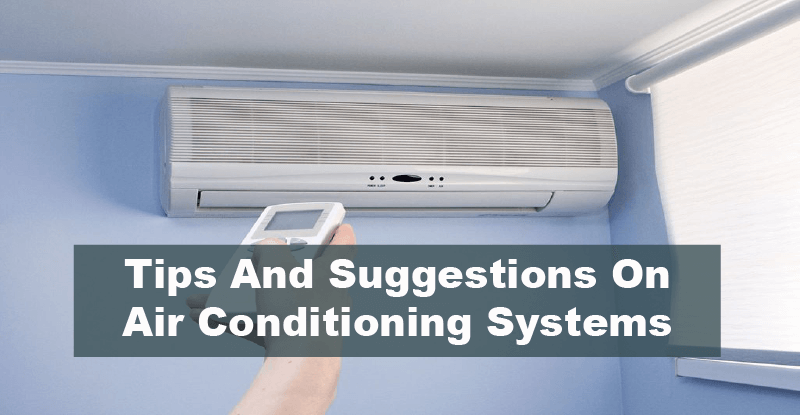Air conditioning systems are essential for maintaining comfortable indoor environments, but selecting, installing, and maintaining them requires careful consideration. Here are detailed tips and suggestions:
1. Choosing the Right Type of Air Conditioner
- Central AC: Ideal for cooling large homes or buildings. It uses ducts to distribute cool air.
- Split AC: Suitable for individual rooms or small spaces. It consists of an indoor and outdoor unit.
- Cassette AC: Perfect for commercial spaces with limited wall space, offering even air distribution from the ceiling.
- Window AC: Best for small rooms, where the unit is mounted in a window.
- Portable AC: Good for temporary cooling solutions or small spaces.
2. Capacity and Sizing
- Calculate Cooling Load: The size of the AC should match the room’s cooling load, measured in BTUs (British Thermal Units). A common rule of thumb is 20 BTUs per square foot of space.
- Consider Climate: In hotter climates, you may need a higher capacity AC.
3. Energy Efficiency
- SEER Rating: Seasonal Energy Efficiency Ratio (SEER) is a key indicator. The higher the SEER rating, the more energy-efficient the unit.
- Inverter Technology: ACs with inverter technology adjust the compressor speed based on cooling demand, reducing energy consumption and maintaining a consistent temperature.
- Star Rating: In India, look for a BEE star rating (Bureau of Energy Efficiency) with 3 to 5 stars indicating higher efficiency.
4. Installation Tips
- Proper Placement: Install the outdoor unit in a shaded area and ensure there is enough space around it for proper airflow. The indoor unit should be installed at a height for better air circulation.
- Professional Installation: Always hire a qualified technician for installation. Proper installation can significantly impact the unit’s efficiency and lifespan.
- Ductwork Considerations: For central AC systems, ensure ducts are properly sealed and insulated to prevent air leaks and loss of cooling efficiency.
5. Maintenance Tips
- Regular Filter Cleaning: Dirty filters reduce airflow and efficiency. Clean or replace filters every 1-3 months.
- Check Refrigerant Levels: Low refrigerant levels can reduce cooling efficiency and damage the compressor.
- Annual Servicing: Schedule professional maintenance annually to check the system’s components, including the coils, fins, and thermostat.
- Clear the Outdoor Unit: Ensure the outdoor unit is free from debris, leaves, or obstructions that can hinder airflow.
6. Smart and Programmable Thermostats
- Programmable Thermostats: These allow you to set temperature schedules, which can reduce energy usage by cooling your space only when needed.
- Smart Thermostats: These offer advanced features like remote control via smartphone, learning your schedule, and optimizing cooling efficiency automatically.
7. Indoor Air Quality
- Use Air Purifiers: Pairing your AC with an air purifier can improve indoor air quality by removing pollutants and allergens.
- Dehumidifiers: In humid climates, a dehumidifier can be used alongside the AC to reduce humidity levels, making the space more comfortable and reducing strain on the AC.
8. Environmental Considerations
- Eco-Friendly Refrigerants: Opt for AC units that use refrigerants like R-410A or R-32, which have lower Global Warming Potential (GWP) compared to older refrigerants like R-22.
- Energy-Saving Modes: Utilize the AC’s energy-saving mode, which can help reduce power consumption by adjusting the cooling output to match the room’s requirements.
9. Noise Levels
- Check Decibel Ratings: Quieter AC units are preferable for residential spaces. Look for units with a decibel rating of 50-60 dB for indoor units.
- Vibration Pads: Installing vibration pads under the outdoor unit can reduce noise and prevent it from disturbing you or your neighbors.
10. Cost Considerations
- Initial Cost vs. Long-Term Savings: While energy-efficient models might have a higher upfront cost, they can save you money in the long run through reduced energy bills.
- Warranty and After-Sales Service: Ensure the unit comes with a good warranty and reliable after-sales service. This can save you from potential high repair costs in the future.
11. Smart Features and Connectivity
- Wi-Fi Connectivity: Many modern AC units come with Wi-Fi capabilities, allowing you to control them remotely using your smartphone.
- Integration with Smart Home Systems: Some AC units can integrate with smart home systems like Google Home or Amazon Alexa, allowing for voice control and automation.
Conclusion
Selecting the right air conditioning system involves considering multiple factors, including the type of AC, energy efficiency, capacity, and maintenance needs. Proper installation and regular maintenance are crucial to ensure the unit operates efficiently and has a long lifespan. By following these tips, you can make an informed decision and enjoy a comfortable, energy-efficient indoor environment.
Looking to install a commercial HVAC System or Duct work in your Business Area?
Contact Vipul Ac to learn about our HVAC Service
Call +91 9825636606 Today.

